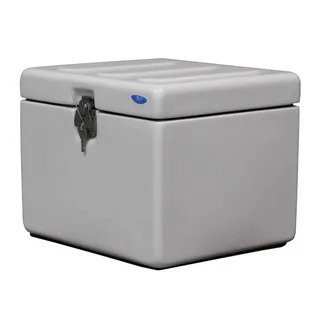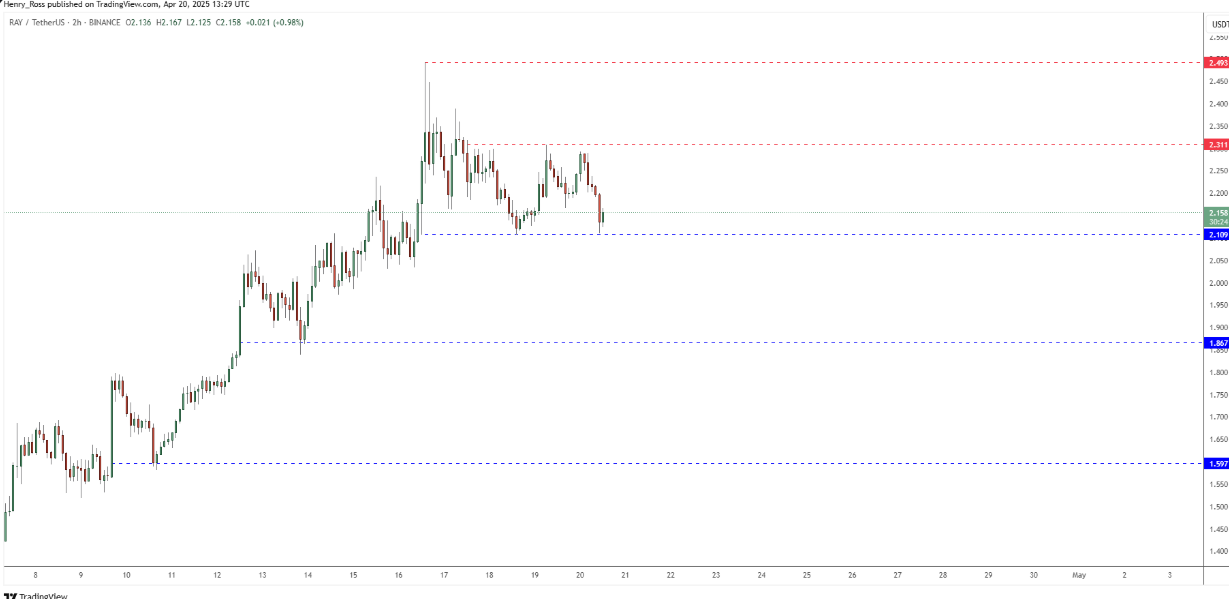Robert Hunter on Grateful Dead’s Early Days, Wild Tours, ‘Sacred’ Songs
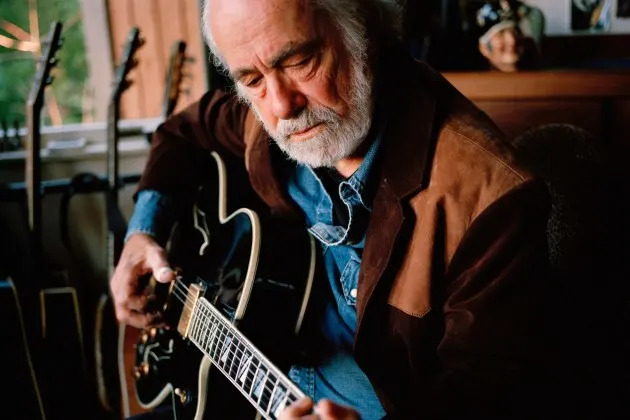 Yahoo is using AI to generate takeaways from this article. This means the info may not always match what's in the article. Reporting mistakes helps us improve the experience.Generate Key Takeaways
Yahoo is using AI to generate takeaways from this article. This means the info may not always match what's in the article. Reporting mistakes helps us improve the experience.Generate Key Takeaways In a rare interview, Grateful Dead lyricist Robert Hunter talks about the band's rise, sharing stories about the group's chance formation, beloved tunes and wild tours - Credit: Jake Stangel for Rolling Stone
In a rare interview, Grateful Dead lyricist Robert Hunter talks about the band's rise, sharing stories about the group's chance formation, beloved tunes and wild tours - Credit: Jake Stangel for Rolling StoneIn May 1965, Robert Hunter popped into a pizza parlor in Menlo Park, California, to see his friend Jerry Garcia play in his new electric band, the Warlocks. “They were good, just dandy,” recalls Hunter, sitting in the living room of his San Rafael, California, home. “It was hard to believe Jerry in a rock & roll band, I’ve got to say. He was a folk musician. But then to become a rock & roll band, him and Bill and Weir and Pigpen—it was amusing. It just seemed unlikely, and it was also a time of odd band names.”
This July, the “core four” of the band that the Warlocks became, the Grateful Dead — Bob Weir, Phil Lesh, Bill Kreutzmann and Mickey Hart — will reunite for shows in Chicago to commemorate the Dead’s 50th anniversary, joined by Phish singer-guitarist Trey Anastasio. But if there were a core fifth surviving member, it would be Hunter, the Dead’s longtime primary lyricist. Garcia’s guitar, Lesh’s massive bass, and the dual Kreutzmann-Hart drums defined the sound of the Dead. But Hunter’s words — heard in “Uncle John’s Band,” “Ripple,” “Eyes of the World,” “Dire Wolf,” “Standing on the Moon,” “Touch of Grey,” “Dark Star,” “Box of Rain,” and so many other milestones in the Dead’s catalog — were the band’s poetic, story-telling soul, often matching the untamed, exploratory nature of the Dead themselves. “You’d see Hunter standing over in the corner,” recalls Hart of the time Hunter joined up with them. “He had this little dance he’d do. He had one foot off the ground and he’d be writing in his notebooks. He was communing with the music. And all of a sudden, we had songs.”
More from Rolling Stone
Grateful Dead's Robert Hunter on Jerry's Final Days: 'We Were Brothers'
Trey Anastasio on Dead Reunion Shows: 'I Don't Want to Just Copy Jerry'
Welcome to Drag School
AdvertisementAdvertisement#«R46ekkr8lb2m7nfddbH1» iframe AdvertisementAdvertisement#«R86ekkr8lb2m7nfddbH1» iframeThe songs Hunter wrote with Garcia (and, occasionally, Lesh and Weir) have lived on, covered by Willie Nelson, Patti Smith, Tom Petty, Los Lobos, Elvis Costello, even Sublime. “Hunter tapped into his generation the same way Dylan did,” says Mike Campbell of the Heartbreakers, a longtime Dead fan. “People will look back and say, ‘That’s American culture represented in music.’ He captured the hippie freedom, the mentality of the little guy against the corporation. A lot of the songs are about gambling, card playing and riverboat guys who’ll cut your throat if you look the wrong way.” Perry Farrell, who covered “Ripple” with Jane’s Addiction, calls Hunter “a poet on the level of Kierkegaard,” and Scott Devendorf of the National says, “Hunter’s lyrics say the right things in a few words, like ‘dry your eyes on the wind.’ His lyrics tell a story, and he can turn a phrase in ways that aren’t obvious.” In what could seem like final validation, Hunter and Garcia will be inducted in June into the Songwriters Hall of Fame, the respected industry institution whose previous inductees range from Stephen Foster, Irving Berlin, and Woody Guthrie to John Lennon, Paul McCartney, and Bob Dylan.
For Hunter, the work has continued since Garcia’s death. He’s written songs with Costello, Bruce Hornsby, roots country savior Jim Lauderdale, and his former Dead band mates for their post-Garcia projects. Hunter is even one of the very rare lyricists Dylan has turned to for collaboration: The two co-wrote most of the songs on Dylan’s 2009 album Together Through Life. “He’s got a way with words and I do too,” Dylan told Rolling Stone at the time. “We both write a different type of song than what passes today for songwriting.”
By his own admission, Hunter has long been an irascible character even in the world of the Dead, rarely doing interviews and maintaining a low public profile. “I was basically a maverick and a rebel’s rebel even amongst the Dead,” he says. “That’s how I grew up. Always the new kid in school. Everybody wants to challenge you all the time.” But three years ago, he came close to dying thanks to a spinal abscess and the discovery of bladder cancer. After recuperating, Hunter hit the road for short tours in 2013 and 2014, an experience that revitalized him and reconnected him with adoring Deadheads. Playing solo acoustic, his guitar approximating Garcia’s chords and his voice often revving up to booming sea-shanty power, Hunter was received rapturously by fans who hadn’t seen him onstage in roughly 10 years. “I didn’t expect that good of a welcome,” Hunter says now, “and it was a lot more fun than I would’ve thought.”
With that, Hunter, 73, feels the time has come to talk about the band that delighted, inspired and vexed over three decades. Over the course of two interview sessions at his home, Hunter, dressed in a denim shirt and slacks, settled into a plush chair in his living room and gave RS a rare peak into his work, life and relationship with Garcia and the Dead. In part one, he covers the Dead’s rise,sharing stories about the band’schance formation, beloved tunes and wild tours; you can read part two here.
AdvertisementAdvertisement#«R4bekkr8lb2m7nfddbH1» iframe AdvertisementAdvertisement#«R8bekkr8lb2m7nfddbH1» iframe“I’m being pretty darn frank in this interview, aren’t I?” he says at one point with a grin. “The great ‘me’ pontificates on what the great band should have been doing according to my brilliant lights! You can quote that!”
Let’s start at the beginning: Legend has it that you met Garcia in Palo Alto on 1961 at a local production of Damn Yankees.He was 18 and I was 19, and we had somewhat similar experiences in a certain sort of way—he lost his father to death and I lost my father to a divorce. Before I moved off to Connecticut in the 12th grade, I was dating Diane Huntsburger. She was doing lights for the show, and Jerry was her boyfriend and he was there that night. She remained a good friend, so she said to go to Damn Yankees and introduced me to Jerry and I say, “Hey, how’s it going.” He didn’t seem very enthusiastic–as if all he wanted was to meet some of his girlfriend’s old boyfriends [laughs].
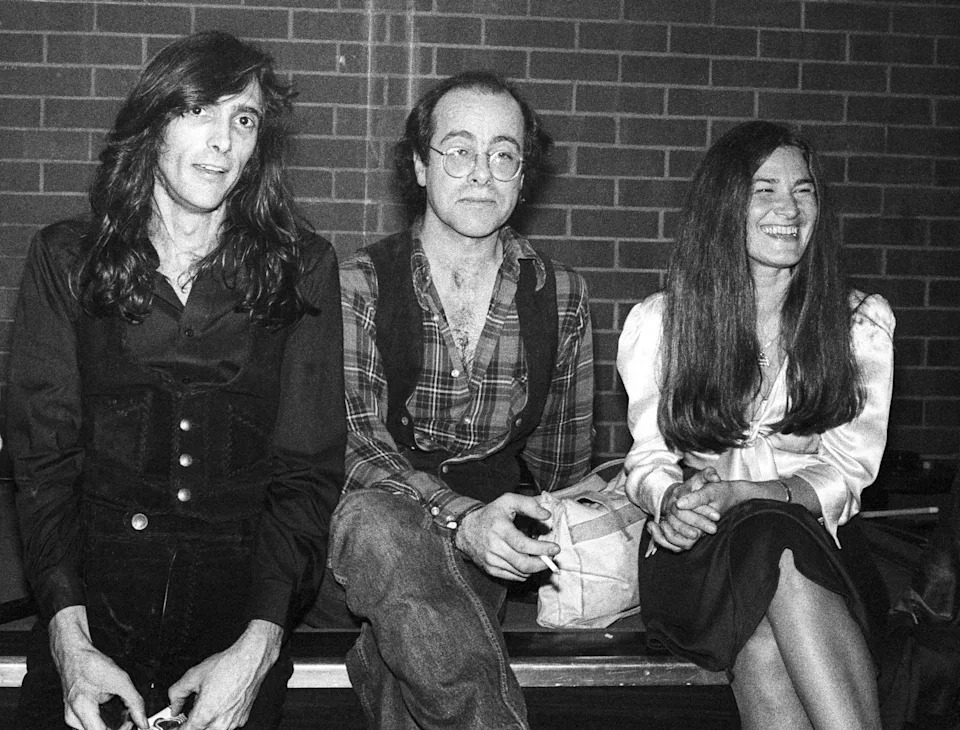 Quicksilver Messenger Service guitarist John Cipollina, Grateful Dead lyricist Robert Hunter and Grateful Dead singer Donna Godchaux pose backstage at the Old Waldorf club 1980 in San Francisco, California. Photo credit: Ed Perlstein/Redferns/Getty Images
Quicksilver Messenger Service guitarist John Cipollina, Grateful Dead lyricist Robert Hunter and Grateful Dead singer Donna Godchaux pose backstage at the Old Waldorf club 1980 in San Francisco, California. Photo credit: Ed Perlstein/Redferns/Getty ImagesBut the next time I met him was at St. Michael’s Alley, a coffeehouse, just a couple nights later, I think. I went in to see if there was any kind of crowd to hang out with. I didn’t really know anybody in town at this point. [Garcia and his friends] said, “Hey, you got a car?” And I said, “Uh, yeah,” and they said, “Would you like to go see Animal Farm tomorrow? It’s supposed to be in Berkeley or something,” and I said yeah, sure. The next day they’re banging on my door, him and Alan Trist. We didn’t see Animal Farm, but somehow we managed to drive in my old car, which I got for $50, a 1940 Chrysler. I didn’t know what we did do! We might have had enough gas to get there. We were all broke!
How did you complement each other from the beginning when you met?A couple of nights after I met Jerry, we went over to this party. There was one guitar there and I start playing it, which is what I usually would do, and Jerry asked if he could have the guitar. And never gave it back [laughs] We got another guitar somehow or another to do the gigs with. We had guitar and folk music in common. I’d been in the folk music club at the University of Connecticut, so I had my folk music and guitar playing, and Jerry, same, same, so we hit it off. To me, Jerry just had a really interesting mind, you know; he was just phenomenal, fun to talk to. All day long, he’d just sit there with this action [picks up guitar and plays fingerpicking folk figure]. He never stopped playing guitar.
AdvertisementAdvertisement#«R4hekkr8lb2m7nfddbH1» iframe AdvertisementAdvertisement#«R8hekkr8lb2m7nfddbH1» iframeWhat was the first song you wrote — was it “Black Cat”?That’s right! I’ll sing it to you. [Grabs his guitar] I don’t think it’s ever been sung: “Tell you a story about my old man’s cat/Cat whose hide was uncommonly black…” [Sings entire song with a huge grin] Jerry and I didn’t have anything else to do and we just wrote the song, and neither of us ever thought about it again. Our first group was Bob and Jerry, and our first gig was at Stanford. We got $5 for both of us. We kept it for a couple of days until we needed cigarettes, and then that was that.
You also played in early bluegrass groups with Jerry.[Nods] And then I didn’t get into the Mother McCree’s Uptown Jug Champions [the pre-Dead jug band], although I was offered. Jerry came over and said, “Would you like to play jug in the band?” But I couldn’t get a tone out of it. I suppose if I had accepted that jug, I would’ve changed the whole trajectory. That wasn’t my direction of travel. I think writing for the Dead was the best thing I could’ve done. In fact I remember at a certain point thinking, “What was I thinking about being a novelist? This is where it’s at.”
And legend has it you were the first in the gang to try LSD, thanks to a testing program at a VA hospital.I used to do psychology experiments — you could get $10 or $15 for doing them, and this was one of them, only this paid better. I had a romping good time. They wanted to find out was whether it increased my ability to be hypnotized. Just a couple of years back I found out it was military or the CIA or something, that they were trying to find its value as a weapon. For me they would’ve found out absolutely nothing. I told Jerry, but there was no way to get ahold of any of this stuff; it wasn’t on the streets yet or anything. It wasn’t until I’d say a good two years later when Jerry took it and he and Sarah [Ruppenthal, Garcia’s first wife] came over to my house. They were on acid and said, “What do we do now?” I said, “Go home, put on a Ravi Shankar record, just listen to the music.” It worked. That was good advice, no?
At one point in the mid ’60s, you also reportedly looked into a new organization called Scientology.For a short time. This was a brand new thing at the time. This fellow came down and was telling us fantastic things, like you get could get out of your body. All of that sounded great. But let’s just say Scientology and I were not a very good match. I was pretty independent minded. Jerry came to one of the meetings. And he truly didn’t care for it. We did these confronting drills and stared into each other’s eyes for long periods of time and tried not to think without trying and not blink. [Chuckles] I gave it the good old college try but then moved into other forms of spiritual endeavors and yoga. I was a seeker at the time and this was one of the places I sought and it wasn’t a good fit. In the end the Grateful Dead fit. I thought there was a possible holy perspective to the Grateful Dead, that what we were doing was almost sacred.
AdvertisementAdvertisement#«R4nekkr8lb2m7nfddbH1» iframe AdvertisementAdvertisement#«R8nekkr8lb2m7nfddbH1» iframeWhat do you mean by sacred?The spirit of the times. It was happening in the Ashbury district at the time, although it didn’t last very long before everybody just descended on Haight Street. But there was a time I felt this was the way the world would be going in a spiritual way, and we were an important part of that. I didn’t feel we were a pop music band. I wanted to write a whole different sort of music. Jerry and I had differences on that. He would say, “Goddamn it, man, we’re a dance band! Stop doing stuff like ‘Eagle Mall’!” He was right: the Dead were a psychedelic dance band. Jerry had written “boogie” on his pedal steel guitar, so he wouldn’t forget to boogie.
Were you there during that famous night in 1965 at Phil’s when they found the name “Grateful Dead”?No, no! I would’ve talked ’em out of it. Definitely. It was outrageous is what it was, one of those things when you’re sittin’ around stoned that sounds like an incredibly good idea. However, time has its way with things, and now it seems like one of the finest choices possible.
Let’s talk about how you became the Dead’s primary lyricist in 1967.I got pretty deeply into speed and meth and came close to messin’ myself up. The scene I was in, I had to get out of that scene entirely, because as long as it was around I would be tempted, so I went off to New Mexico. And while I was there I had been writing some songs, mostly before I left Palo Alto. I had written “St. Stephen” and “China Cat Sunflower,” and I sent those — and “Alligator” — off to Jerry, and he uncharacteristically wrote back [laughs]. He said they were going to use the songs and why didn’t I come out and be their lyricist? Which I did.
And there’s the famous story of you listening to the band rehearse and coming up with some of “Dark Star” as they played.Right, because they were rehearsing it right away. They were playing and I wrote down a verse for it and it worked. Then a couple of weeks later, I was sitting in the Panhandle [in San Francisco] and writing out a second verse, and this guy came up and said, “Hey, you want a hit?” I don’t remember if I took it or not, but I said, “I’m writing the second verse for the song called ‘Dark Star’ for the Grateful Dead — remember that.” I had a prescience about the whole thing at that point. Once I started believing in that band, I thought, we’re going to go the distance.
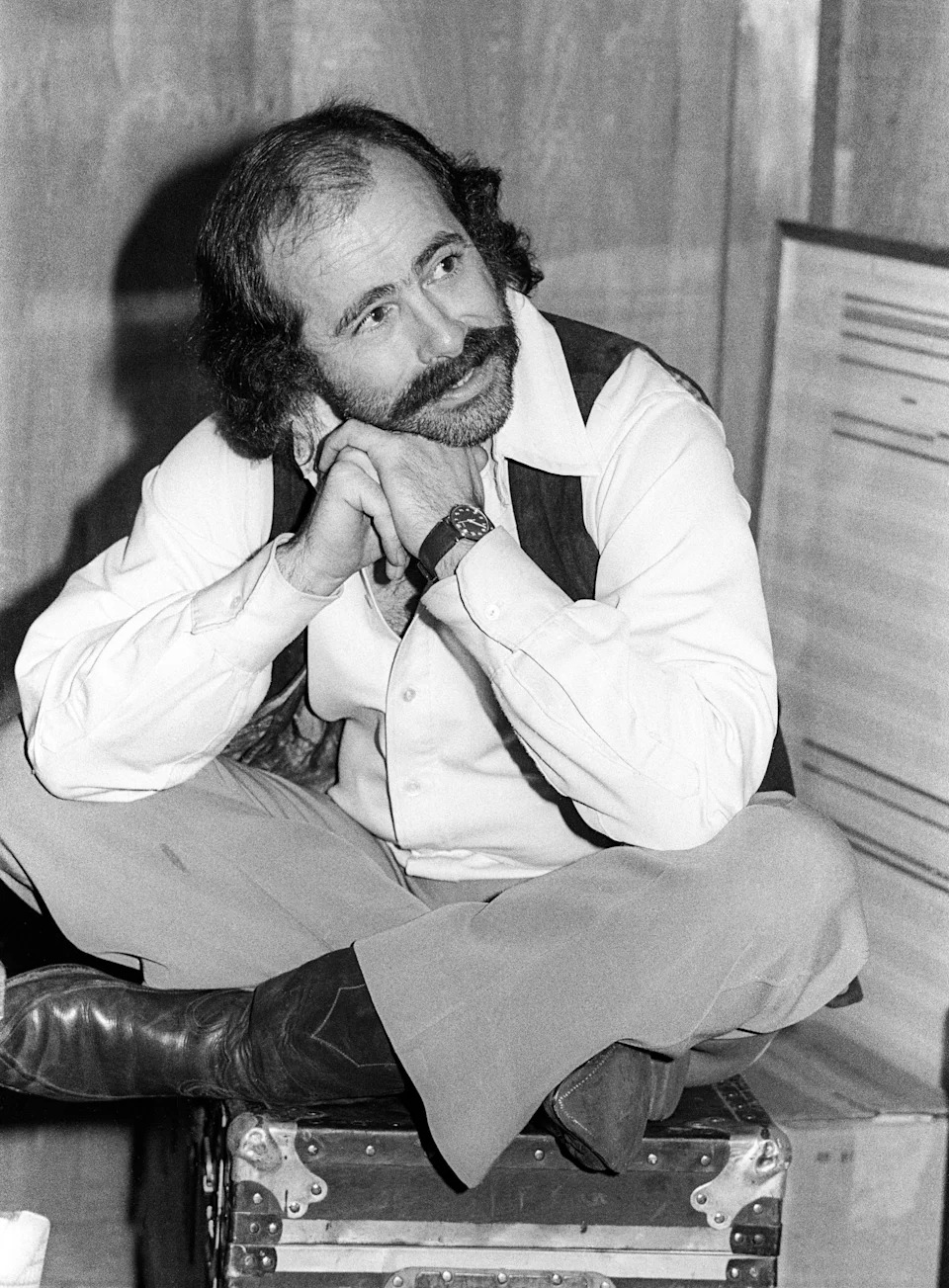 Robert Hunter poses at the Grateful Dead’s rehearsal studio, Club Front, in November 1977 in San Rafael, California. Photo credit: Ed Perlstein/Redferns/Getty Images
Robert Hunter poses at the Grateful Dead’s rehearsal studio, Club Front, in November 1977 in San Rafael, California. Photo credit: Ed Perlstein/Redferns/Getty ImagesDid you often write when you were high?Sometimes you got high and sometimes you didn’t. Sometimes you took speed and sometimes you smoked pot. I actually wrote one song drunk, “Dupree’s Diamond Blues.” [Chuckles] And God knows how I wrote “China Cat Sunflower.” I was working on that for months, adding verses and drafting this, that and the other thing. I find that writing on pot, I throw an amazing amount of stuff away that looked groovy to me while I’m stoned and doesn’t look groovy afterwards. If I want to be productive it’s best to be straight. Now, a cup of coffee is going to get me going, and that’s about it.
AdvertisementAdvertisement#«R4uekkr8lb2m7nfddbH1» iframe AdvertisementAdvertisement#«R8uekkr8lb2m7nfddbH1» iframeHow would you write songs with Garcia?Jerry didn’t like sitting down by himself and writing songs. He said, “I would rather toss cards in a hat than write songs,” and this was very true. There were situations where he would come over and have melodies and we’d see what we could get out of that. More often I would give him a stack of songs and he’d say, “Oh, God, Hunter! Not again!” He’d throw away what he didn’t like. I’d like to have some of the stuff he tossed out! I don’t know where it went. I wrote once about “cue balls made of Styrofoam” — that line from “Mississippi Half-Step Uptown Toodeloo.” Jerry took objection to the word Styrofoam. He said, “This is so uncharacteristic of your work, to put something as time dated” — or whatever that word would be — “as Styrofoam into it.” I’ve never sung that song without regretting I put that line in. Jerry also didn’t like songs that had political themes to them, and in retrospect I think this was wise, because a lot of the stuff with political themes from those days sounds pretty callow these days.
What would surprise us to learn about you and Jerry hanging out in the old days?Jerry and I used to watch Porter Wagoner’s show. Then afterwards we’d watch Sesame Street, which had just come on. It was mind-boggling. There was nothing ever like that on television before.
What do you recall of that legendary 40-minute instrumental tape the Dead gave you that became “Uncle John’s Band”?Oh, it wasn’t that long. But yeah, it was the music for it, and I had it on tape and played it over and over. I think I started out with “Goddamn, Uncle John’s mad,” and like that, which turned into “Uncle John’s band.” But it was my feeling about what the Dead was and could be. It was very much a song for us and about us, in the most hopeful sense.
How about “Ripple”?We were in Canada on that train trip [the Festival Express, 1970] and one morning the train stopped and Jerry was sitting out on the tracks not too far off, in the sunrise, setting “Ripple” to music. That’s a good memory. That was one of the happy times, going on that train trip. Janis [Joplin] was the queen of that trip. One of my greatest memories is having breakfast with her on the train. She was having Southern Comfort and scotch, and she asked me if I heard that song by Kristofferson, “Sunday Morning Comin’ Down,” and she sang it in my ear. Can you imagine?
AdvertisementAdvertisement#«R53ekkr8lb2m7nfddbH1» iframe AdvertisementAdvertisement#«R93ekkr8lb2m7nfddbH1» iframe“Truckin'” also was completed on the road with the Dead, wasn’t it?Yeah, I think it was in Florida, and I had been writing it for some time. I think I finished it there — it was not a song I just dashed off. And then I gave it to them. They were all sitting around the swimming pool, the guitars there, and they did a good job on it. I wrote all the lyric. “Sometimes the light’s all shinin’ on me” — I think that’s Phil. It took me a couple of months to write and it maybe took ’em about half an hour to put it together.
Did you know Phil’s dad was seriously ill when you wrote the lyrics for “Box of Rain”?Yeah, a song for Phil’s dad. It wasn’t about dying in particular; it’s about being alive. I wrote “Playing in the Band” to the sound of the pump on Mickey’s ranch. We put chords on that rhythm. The rhythm was provided by nature. “Fire on the Mountain” was right around the same time, also at Mickey’s ranch. There was a fire on the mountain and it looked like it was going to endanger the ranch. So what did I do about it? I sat there and wrote a song about it while the smoke was pouring out. A good starting point.
When it comes to working with the band, do you have a favorite era?Well, I think the most fun was down in L.A. doing Anthem of the Sun, which was way back in the beginning for me — just hangin’ around being great friends and all that kind of stuff. Weir’s famous quote to the producer, Dave Hassinger, at that time: “We’re looking for the sound of thick air!” [Laughs] I was there when that was said.
How about a favorite lyric or line you wrote?“Let it be known there is a fountain that was not made by the hands of men” [from “Ripple”]. That’s pretty much my favorite line I ever wrote, that’s ever popped into my head. And I believe it, you know?
AdvertisementAdvertisement#«R58ekkr8lb2m7nfddbH1» iframe AdvertisementAdvertisement#«R98ekkr8lb2m7nfddbH1» iframeTo prepare for your recent tours, you’ve said you listened back to Dead albums again. What was that like for you?Some of the versions sound better almost than I can believe, and Jerry’s guitar playing and his knowledge of the modes and stuff is overwhelming. And sometimes, somebody in the band is just singing flat [laughs]! Which, as a lyricist, tends to ruin a song for me. Sometimes it’s phenomenal, though. “Casey Jones” didn’t start out as a song, it just suddenly popped into my mind: “driving that train, high on cocaine, Casey Jones, you better watch your speed.” I just wrote that down and I went on to whatever else I was doing, and some time later I came across it and thought, “That’s the germ of a pretty good song.” The remixes on some of those albums sound so brilliant you can’t believe it, you know. They sound like what they should’ve sounded like back then.
You had a legendary songwriting binge in London in 1970.[Nods] “Ripple,” “Brokedown Palace” and “To Lay Me Down.” Everybody went away and left me alone for the afternoon with a bottle of Retsina and a beautiful London day. I’d never been in London before so it was all new to me. They had this beautiful parchment paper in the room — a stick of it that just called out for things be written on it. And that stuff just poured out…. One thing Jerry wouldn’t do is go back over and redo parts of songs. I’d written that extra verse for “Friend of the Devil” and he said, “Why the hell don’t you give me these things before I record them?” And also the same with “Rubin and Cherise.” I had some ending Orpheus and Eurydice stuff in there to complete the story. He liked it but said, “I’ve already recorded it and can’t go back and do it again.”
Did you write lyrics in Jerry’s voice sometimes, things he couldn’t express or articulate?That was never requested of me. But more from many nights of raving all night the way people do in their early twenties, he knew me real well and I knew him real well, and I remember his girlfriend at that time, she said it was hard to tell where he ended and I started up. We were brothers in that sense. I loved that band until I didn’t give a damn about ’em, I’ll say that. I really just thought they were the cat’s whiskers.
When did you stop thinking that?I made that statement, and I should be able to justify it. It’s when cocaine took over the band, everybody talking through their hat, all the time, continuously. I had gotten done with my speed trips before I joined the band. I had no interest in coking or anything else — I had been there and hurt myself. And it just kept coming in and in — cocaine! What I did at that point [the mid-Seventies] was move to England. I spent a lot of time going back and forth and a lot of time living there. Not that I was tired of the band or the guys in the band. The whole surrounding scene was… heavy. So I did what I should’ve done, I got out. And then we moved back [to the States] because the money had run out.
AdvertisementAdvertisement#«R5dekkr8lb2m7nfddbH1» iframe AdvertisementAdvertisement#«R9dekkr8lb2m7nfddbH1» iframePeople have often interpreted “Ship of Fools” as your comment on the Dead scene around that time, 1974.I debate myself about that one. I could certainly make a case for it, and I could also say that it was a bit more universal. I’m open to questions about interpretation, but I generally skate around my answers because I don’t want to put those songs in a box. “New Speedway Boogie” is about Altamont, you know: “Please don’t dominate the rap, Jack.” Jack was [writer] Ralph J. Gleason, and why are you laying all this blame on us? It was badly conceived to move that thing from Golden Gate Park. We were going to do the show for free there, and then suddenly after the Rolling Stones were involved, San Francisco said no, so we went to Altamont. Had to do it. Now is it our fault or is it the San Francisco city council’s fault that that went down? Who’s to say, you know, so in time we may understand. That’s what the song says, and in time we may not understand.
You didn’t go to Altamont, right?No, I didn’t, I went to see Easy Rider that day one way or another. I don’t like festivals, or I didn’t at the time. I didn’t go to Woodstock or Watkins Glen.
Was “Althea” written about Jerry?No.
Some think some of those lines — “ain’t nobody messing with you but you/but your friends are getting most concerned” — were for Jerry, especially when hard drugs entered the scene.Hmm… you think? You know, people think I have a lot more intention at what I do because it sounds very focused and intentional. Sometimes I just write the next line that occurs to me, and then I stand back and look at it and say, “This looks like it works.” But that does kind of sound like a message to him. There were other people messing with him.
AdvertisementAdvertisement#«R5iekkr8lb2m7nfddbH1» iframe AdvertisementAdvertisement#«R9iekkr8lb2m7nfddbH1» iframeIn 1982, the Dead started playing “Keep Your Day Job,” a new song you’d written with Garcia, but it was dropped from the set soon after. Some fans thought it was a criticism of following the band around on the road.I don’t think they were really listening to it. They didn’t like the idea. I was saying, “Keep your day job, support yourself, whether you like that gig or not.” You had to do your job while you’re lining up your long shot. That just makes good sense. It was a nice uptempo song with a catchy lyric. A couple of people reacted, and it became a thing to dislike “Keep Your Day Job.” They didn’t like the meaning, or what they perceived as the meaning.
When Jerry was busted in 1985, was it all catching up with him?We all went over once to his house and confronted him, and he opened the door and saw what was going on and said, “Get out of here!” He was trying to shut the door and we all filed in and did the confrontation you could do. And he said he’d do something about it. That’s about all you can do, isn’t it? All I can say is that it more or less ruined everything, having Jerry be a junkie. I remember a time when “junkie” was the nastiest thing Garcia could call anybody. You had such contempt for anybody that would get involved in that.
But what are you going to do when you’re elevated the way he was? He once said, “They’re trying to crucify me, man.” And I said, “Jerry, never mistake yourself for Jesus Christ.” And he really took that advice. He took it hard and well. You’ve got to understand the whole weight of the Grateful Dead scene was on Jerry’s shoulders, to support all the families and everything as well as the audience’s expectations. There were times when I just drove him through the wall.
The time Jerry got busted in Golden Gate Park, they took his briefcase. I haven’t gone searching for it, but I happen to know that briefcase had a number of new songs he was working on. And if the police still have them, I’d like them back, please. It doesn’t seem right. A lot of those songs disappeared. I would give [Bob] Weir the only copy of a song, and he’d put it in his back pocket and he would do the wash and there would go that song. And he’d say, “Do you remember any of that song?” and I’d say, “Maybe I can remember a verse or two.” But that’s one good thing about word processors coming along — there are no more lost songs.
Then Jerry had his coma in 1986.Jerry was diabetic, and before he had a coma, he was guzzling down fruit juice. It would’ve been better if he was guzzling down brandy. I believe that sugar put Jerry where he was. He was in terrible health — diabetic and taking immense amounts of sugar, and it did what sugar will do to a diabetic and overloaded him into a coma. I remember going in to see him when he was coming out of it, and he was saying, “Am I insane?” And I said, “No, man, you’ve been very, very ill, but you’re fine, you know, you’re coming out of it.” And he said, “I’ve seen the most amazing thing.” He’d been somewhere.
The following year, the band has its biggest hit ever with “Touch of Grey.”“Touch of Grey” was not your everyday song. Still is startling to hear it in the supermarket. A lot of people put it down, as if it’s not right for us to be popular and all that! I was living with [my wife] Maureen in a 15th-century house on the west coast of England, and one morning I wrote that thing. Jerry and [bassist and Garcia Band member] John Kahn and I were making an album of mine that never got finished, and Jerry said, “Would you mind if I reset the music to ‘Touch of Grey’ and use it for the band?” And I said, “No, go ahead.” The line “light a candle, curse the glare” is Jerry’s addition to it. My version wasn’t that bad, but [on the Dead’s version] it was that rhythm and rather excellent chord changes, moving from E to C sharp minor and interesting things.
What inspired that song?You know, I’ll give you the blistering truth about it. A friend brought over a hunk of very good cocaine. I stayed up all night. And at dawn I wrote that song. That was the last time I ever used cocaine. Nor had I used it for many years before that. Now I listen to it and it’s that attitude you get when you’ve been up all night speeding and you’re absolutely the dregs. I think I got it down in that song.
You went scuba diving with Jerry in Hawaii during this period. How important was that to him?That was his natural habitat. He was at one with that, underwater. You ever scuba dive? There’s nothing like it. One of my nicest memories was coming back onto the boat with Jerry while we were diving and there was beautiful Hawaiian sunshine and dozens and dozens of dolphins were following us along. They were with us, not just following us. That whole underwater environment was good for him. Better than smack.
One of your and Garcia’s last collaborations, “Days Between,” in 1993, felt like a genuine breakthrough into a new type of song.I’ve heard Jerry do versions of that and leave you a puddle. That is the story of what went down as far as I can see. More so than any other single song. It seemed to get my feeling about those times and our place in it. Jerry didn’t die that much… you know, a couple years after that. He had been into rehab again, and he called me up and he was out and he was going to come over and we were going to get writing again and he said some wonderful stuff that was very uncharacteristic of him. He said, “Your words never stuck in my throat.” Jerry didn’t tend to talk like that, and there was something possibly, slightly alarming about it because he was dead within a week or so after that.
Alarming in what way?Jerry wasn’t like that — to hand out appreciation that way. It was always implicit with him. Perhaps there was a finality to it, that that was the last statement, whether or not he knew he was going to die in a week or not. Apparently he died with a smile on his face, though. Uhh! Those were the heavy times.
Was that your last conversation with him?Yeah. He said he had to go to a party he couldn’t get out of, so he said he’d come over in a couple of days like that. But he didn’t. Both of us were hot to get down on the method we used for “Days Between.” That went way, way outside in the way of construction. Up in the pool house here is where Jerry and I wrote “Days Between.” I have a little electric piano up there and I gave him the strange first verse I’d written with very irregular lines and he was sitting there and he worked a melody out. While he was working the melody out I was the writing the second verse and I got it to him, and then he’d start working the second verse out, and then I’d do it while I was doing third verse. I’m so proud of that song. Both of us were very interested in where we could go with that kind of strange and irregular construction. I almost feel in certain respects we were just getting started. We were past one whole phase of writing, and “Days Between” signaled the next.
Did you know he was going to the rehab facility where he died?No, I knew nothing about that. I have no idea about what went down there. That was headline news — Bill Clinton, the president, even said something. I mean, gosh, how popular was this guy? He was popular for depth rather than flash or timeliness. And my feeling is Jerry will be remembered along with a very, very select few of our age group.
Did you see his death coming?I always saw it coming, but seeing it coming is not the same as seeing it. I didn’t get the feeling he intended to live for very long. In fact he had said as much, at one point I can remember. He was conscious that it was not going to last forever, nor did I think he wanted it to. There are things about Jerry I just don’t understand. Or maybe am not capable of knowing.
His psychology, in other words?Yeah. There was an aspect of him that was rather deeply depressive, which people don’t know about. You think Jolly Jerry, and that’s fine when he’s singing. But that man had an agony almost that he had to fight. I suppose it had something to do with losing his dad so young, and possibly his finger getting chopped off. Who knows, but there was a decided darkness to him. But you know, what great man doesn’t have that? His bright side, his ebullient side, far seemed to outweigh [it]. The darkness came into his music a lot. And without it, what would that music have been? Hearing him sing “Days Between,” you know — an agonizing cry from the heart, the way he would sing that sometimes.
AtGarcia’s memorial service in 1995, people still remember that powerful poem you wrote and read for the occasion.I walked up to the front there and his coffin was over to the right and I was reading this stuff and I looked over at that direction. I couldn’t really see him, but I could see the black T-shirt or whatever it was. All of a sudden I got the shakes so bad. I was just reading with my hands like that. Afterwards I didn’t go up and look at him. I just couldn’t. I could not picture Garcia dead and I haven’t seen him dead.
Do you think you’ve come to terms with his death?[Sighs] I can’t answer that. I don’t know. There are times when suddenly I realize there’s some residual grief and always will be. There was none like him. Irreplaceable. It always felt like it would never end. And then all of a sudden it was gone. It was gone with Garcia.
What are your favorite covers of songs you wrote with him?I liked Elvis’ “Ship of Fools” a lot. And who’s that band that did “Ripple”? Jane’s Addiction. That was incredible! I almost dropped my chewing gum.
Do you keep up with new music?My daughter made sure I listen to… what’s that guy from Nine Inch Nails? Trent Reznor. She makes sure I’m aware of everything Trent is doing. I’m not an authority on him by any means, but I appreciate what he’s doing. I watched that thing they did in Golden Gate Park on TV, and I was very impressed, somebody putting that kind of power into it.
Last fall, the Dead signed a new publishing deal with Universal Music, which, as before, gives you veto power over use of songs (with your lyrics) in commercials and soundtracks.I don’t approve things that are in obvious bad taste. I don’t approve things that want to use the Grateful Dead specifically because of their drug-related connections. I insist the Grateful Dead stuff be treated with respect or you can take your contract and go away. If you want to treat it as some kind of joke, hell with you. I figure it’ll be 50 years from now or longer before all the ridicule the Grateful Dead have received for being hippies and druggies melts away and they can look at the material for what it is. I still feel there is something real in it because I put my effort into it, and if I allow it to be sabotaged, I’m not only sabotaging my work but the work that a great number of people have accepted into their lives and identify with. Levi’s offered half a million dollars to use “Truckin'” or something–which was a lot of money back in the early Seventies — and I said no.
My other big decision was on the back of American Beauty. They had a photograph of everybody with guns, and I said “No!” I don’t say no very often, and I don’t know who I am to say no, but I said no in a big fashion and they left it off. Can you imagine the back of American Beauty with the Grateful Dead armed to the teeth? There are some things that are just a matter of taste. I can’t say I was right or wrong, but man, you can tell now I was right about that.
Does it ever surprise you how long this music has endured?OK, to get very egotistical about it, way back when I thought we were making music for the ages. I thought that’s what we were doing and it’s what I tried to do. It’s what Jerry was trying to do. That’s one of the reasons we based our stuff very heavily on traditional music as a continuity with that tradition. That it worked out that way and continued to survive was not a big surprise…. I look back and I’ve realized what marvelous good luck I’ve had and a lot of it has it do with the persistent loyalty of fans. That’s a blessing! I won’t play for a couple of years and I forget. Playing Grateful Dead songs to Grateful Dead fans — there’s nothing to compare to that, being up onstage and doing “Ripple” in front of people who’ve grown up with that song. They love it, and I’m able to give it to them as close to the source as you’re going to get.
Best of Rolling Stone
Sly and the Family Stone: 20 Essential Songs
The 50 Greatest Eminem Songs
All 274 of Taylor Swift's Songs, Ranked
Sign up for RollingStone's Newsletter. For the latest news, follow us on Facebook, Twitter, and Instagram.





